Watching a loved one push away a plate of food they once enjoyed can be deeply worrying and frustrating for any caregiver. You're left wondering whether it's the meal, their mood, or something more serious causing this sudden loss of appetite.
The truth is, a fading appetite in seniors is rarely about a single factor; it's often a complex puzzle of changing tastes, underlying health issues, and the natural effects of aging. This article examines common reasons seniors lose their appetite and offers compassionate, practical strategies to improve nutrition and support their overall well-being.
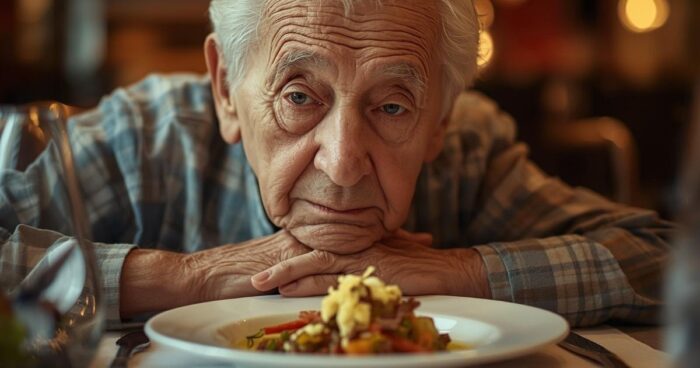
Here are 10 common reasons seniors lose their appetite, along with practical solutions to encourage better eating habits.
Loss of Appetite is Common in Seniors
Many older adults struggle with mealtimes or avoid eating because they’ve lost their appetite. This is crucial because seniors must maintain a balanced diet to stay healthy and active.
A diminished appetite in older adults, a condition known as the “anorexia of aging”, is a complex issue driven by a confluence of physiological and lifestyle changes. A primary factor is the natural decline in metabolic rate and energy expenditure, often due to loss of muscle mass (sarcopenia), which reduces the body's caloric needs (Landi et al., 2016).
Furthermore, the senses of taste and smell can diminish with age, making food less appealing; seniors typically have only about half as many taste buds as they had in their youth (Methven et al., 2012).
Hormonal shifts also play a significant role, as levels of hunger-stimulating hormones such as ghrelin decline. In contrast, hormones that signal fullness, such as cholecystokinin, remain elevated or even increase, leading to earlier satiety (Di Francesco et al., 2007).
When combined with other common factors like medication side effects, social isolation, and dental problems, it becomes clear that loss of appetite is a multifaceted challenge rather than mere pickiness.
How can you convince someone with no appetite to eat? Why do seniors lose their appetites in the first place?
First, Rule Out Severe Health Conditions or Medication Side Effects
If an older adult suddenly loses their appetite, talking with their doctor is essential. A check-up may be necessary to rule out severe health conditions or potential medication side effects.
Some serious illnesses cause changes to taste and appetite, including:
- Alzheimer’s and Parkinson’s disease
- Thyroid disorders
- Cancer
- Mouth and throat infections or gum disease
- Salivary gland problems
Medication side effects, such as dry mouth or a metallic taste, can alter the taste of food or water, which can also lead to a loss of appetite.
INFOGRAPHIC: Why Seniors Lose Their Appetite
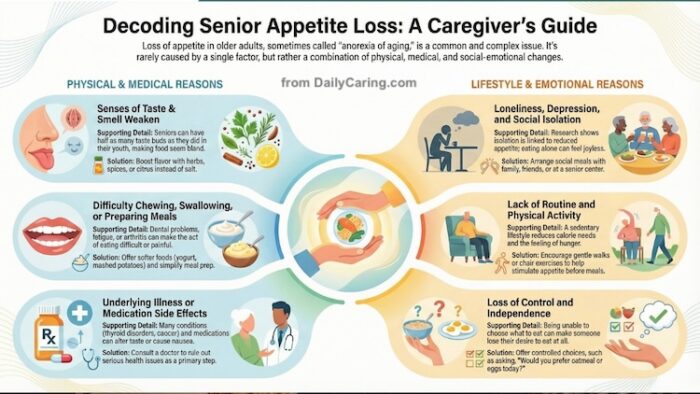
Top 10 Reasons Why Seniors Lose Their Appetite
If a health or medication issue doesn’t cause loss of appetite, here are 10 other reasons someone might not want to eat.
1. Lack of Exercise
Regular exercise and activity help boost appetite. Sometimes, seniors need to work up an appetite before they can eat.
Why it happens: Physical activity stimulates hunger. When seniors become sedentary, their calorie needs decrease, and their appetite may drop.
How to help: Encourage gentle walks, chair exercises, or water aerobics. Even short movement breaks before meals can boost appetite.
2. Dehydration
Being dehydrated can cause loss of appetite. Many older adults don’t get enough fluids and become dehydrated more easily because of age-related changes or medications they’re taking.
Why it happens: Many seniors don’t drink enough water, and dehydration can mimic hunger cues. Dry mouth or difficulty swallowing may also make eating unpleasant.
How to help: Offer small sips of water, herbal tea, or broth throughout the day. Include high-water foods like watermelon, cucumbers, and soups.
3. Lack of Routine
Establishing a daily routine in which meals are eaten around the same time each day can help the body anticipate those times and feel ready to eat.
Why it happens: Seniors may forget to eat or skip meals due to a lack of a structured daily schedule.
How to help: Set consistent meal and snack times. Use reminders (alarms, phone calls, or a meal delivery service).
4. Inability to Prepare Meals
Seniors living independently might not eat because preparing meals has become too complicated.
Why it happens: Arthritis, fatigue, or cognitive decline can make cooking challenging.
How to help: Arrange meal delivery (Meals on Wheels, frozen senior-friendly meals). Simplify meal prep with pre-cut veggies, microwaveable dishes, or meal kits.
5. Loss of Taste (Ageusia or Dysgeusia)
As people age, their taste buds often become less sensitive to flavors, making regular food appear bland and unappetizing.
Why it happens: Aging dulls taste buds, and medications (such as blood pressure drugs) can worsen this.
How to help: Boost flavor with herbs, spices, or citrus instead of salt. Try temperature variations (cold fruit vs. warm soup) to enhance taste.
VIDEO: Top 10 Reasons Seniors Lose Their Appetites
6. Difficulty Chewing or Swallowing
Many older adults avoid eating when it becomes too difficult or unpleasant.
These problems can be caused by:
- Typical aging (wear and tear on the body)
- Dental problems
- Medications
- Medical treatments like surgery
- Stroke, dementia, multiple sclerosis (MS), Parkinson’s disease, or other health conditions
Why it happens: Dental problems, ill-fitting dentures, or conditions like dysphagia make eating painful.
How to help: Offer soft foods (mashed potatoes, yogurt, scrambled eggs). Consult a dentist or speech therapist for swallowing exercises.
7. Sensitivity to Smells
Sometimes, people develop a sensitivity to the smell of certain foods, which can cause nausea or an inability to eat.
Why it happens: A heightened sense of smell (or nausea from medications) can make food unappealing.
How to help: Serve cold or room-temperature meals (less aromatic). Avoid strong-smelling foods (fish, certain spices).
8. Depression or Loneliness
Depression affects 1 in 10 seniors and often causes loss of appetite.
Many older adults may also dislike mealtime because they have no one to eat with, which intensifies their loneliness.
Why it happens: Grief, isolation, or depression kills an appetite. Eating alone can feel joyless.
How to help: Arrange social meals (family visits, senior center lunches). If depression is a factor, consider pet therapy or counseling.
9. Loss of Control
When older adults depend on others for everything, they lose control over how they want to live.
Sometimes, being unable to choose what to eat can make someone lose their appetite.
Why it happens: Seniors forced into restrictive diets (low-salt, diabetic-friendly) may rebel by not eating at all.
How to help: Offer controlled choices (“Would you prefer oatmeal or eggs today?”). Allow occasional “forbidden” treats in moderation.
10. Mealtimes are Unpleasant
If mealtimes have become a time for disagreements or arguments about their eating, seniors could associate food with unpleasantness and avoid it.
Why it happens: Rushed meals, uncomfortable seating, or arguments at the table can create negative associations.
How to help: Make meals calm and enjoyable (soft music, pleasant conversation). Ensure proper seating support (ergonomic chairs, padded cushions).
Final Thoughts About Seniors Losing Their Appetite
An aging adult's changing appetite is more than a minor inconvenience; it's a critical cue from the body that demands our attention and care. By understanding the ten common reasons behind this shift (from the subtle impacts of medication to the profound loneliness of social isolation), we can move beyond simply urging them to “eat more.”
This knowledge empowers us to become compassionate detectives and creative problem-solvers. Instead of frustration, we can respond with practical solutions: consulting doctors, enhancing flavors, and creating shared, joyful mealtimes. Addressing appetite loss is a powerful act of preventative care, one that directly safeguards their strength, independence, and overall vitality.
Let this understanding guide you in nurturing not just their nutritional health, but their quality of life, one thoughtful meal at a time.
Recommended for you:
- 6 Ways to Get Seniors with No Appetite to Eat
- SNAP Benefits for Seniors: 7 Key Food Assistance Program Facts
- Chair Yoga for Seniors: Reduce Pain and Improve Health
About the Author

Connie is the founder of DailyCaring.com and was a hands-on caregiver for her grandmother for 20 years. (Grandma made it to 101 years old!) She knows how challenging, overwhelming, and all-consuming caring for an older adult can be. She also understands the importance of support, especially in the form of practical solutions, valuable resources, and self-care tips.











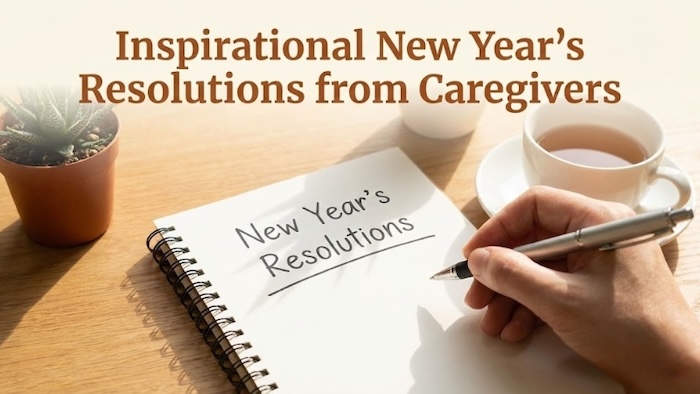
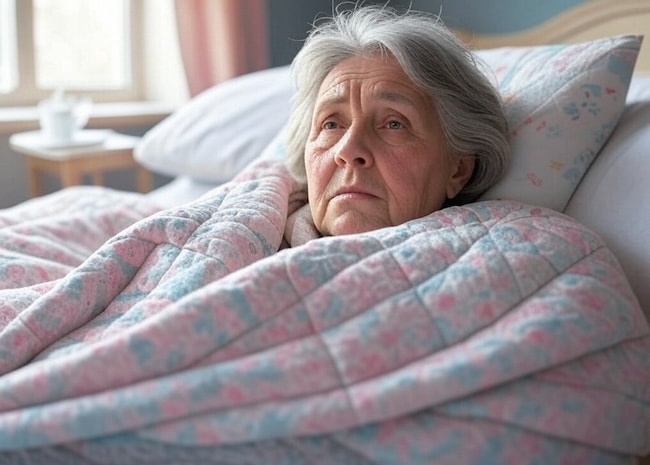
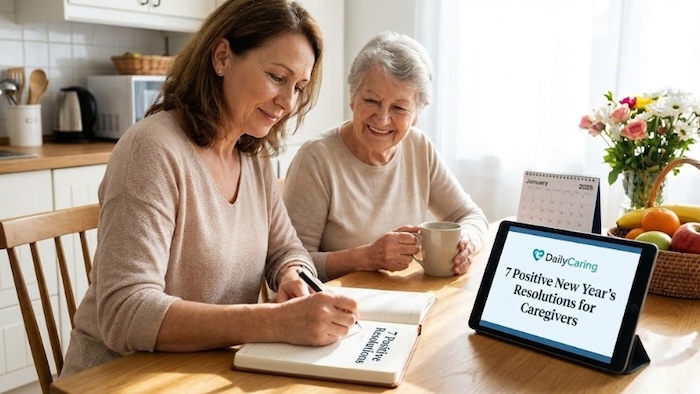
I am 73 and have difficulty eating. Ever since I had Covid systoms for 4 years. I do “like” certain thing on and off. Breakfast cerals and Eggo Waffles for example. A bowl of cereal and a couple of waffles are an average meal, with coffee.
And I was a devoted meat eater, rarely do now. And much smaller portions.
And you would think I would at least lose weight! Nope!
But good new is I am maintaining a steady weight.
Thank you for your comment Mr. Chambers! Eating habits can definitely change, especially after battling a virus or bacterial infection. My mother-in-law lost most of her sense of taste for 6 months!
I’m glad you’re maintaining weight. If you’re able, do try to eat some daily protein and get in a bit of daily exercise (I’ve been on an an exercise crusade as I close in on 60). Incidentally, those eggs you’re eating are considered the new “super food” according to most longevity experts.
Here’s a great piece from “Aging Today” on the magic benefits of a 30-minute walk. Thanks for you comment – Be well.
You said reasons, but not discussed on solutions for elderly people unable to take food in apt quantities .
You might be interested in our companion articles that continue this topic:
– 6 Ways to Get Seniors with No Appetite to Eat https://dailycaring.com/6-ways-to-get-seniors-with-no-appetite-to-eat/
– 9 More Ways to Get Seniors with No Appetite to Eat https://dailycaring.com/9-more-ways-to-get-seniors-with-no-appetite-to-eat/
So where does one draw the line between not being as hungry as one once was and what is a healthy appetite? I do not need nor do I want to eat as much as I once did… but I do want to cut back on portion size and the number of meals…
Appetite and nutrition are unique to each person. The best person to make this assessment is your own physician.
Hello,
Yes I’m having a serious problem … Eating?
I need Help.
Thank you.
We strongly recommend that you see your doctor to find out if there are underlying health conditions that could be making it difficult for you to eat.
My 86 year old mother has lost considerable weight in the last year or so. Test results were fine but she is suffering from severe constipation and she became scared to eat anything. She didn’t eat for two days and became very lethargic. I am looking for suggestions of what foods will help her.
We’re so sorry to hear about this situation. It’s good that her doctor hasn’t found any underlying health conditions that could be causing her weight loss.
Helping to relieve her chronic constipation may help her to feel confident enough to eat. We’ve got suggestions for lifestyle changes that can help with constipation here – Constipation in Seniors: 6 Effective Home Remedies https://dailycaring.com/constipation-in-seniors-6-effective-home-remedies/
It may be better not to make too many changes to her diet at once, gradual changes will be more comfortable for her body to adapt to.
If the severe constipation persists, ask the doctor to do a more thorough exam to find the cause. There could be a medical issue that’s causing a problem.
Thank you. I have a upper denture now for five years and I don’t like it at all. I will get up in the morning and want to eat like a strawberry and even put one in my mouth and laugh as I realize I don’t have my denture in.
I find this topic very educative. A big thank you!
You’re very welcome! So glad this is helpful.
Thank you for this information. I now realise that it’s my dentures that have made me lose my joy in good. My life seems to have changed since I had these dentures. I don’t like them at all.
So glad this article is helpful! We hope your dentist can help make your dentures more comfortable to wear. Or, if they’re new, perhaps it will just take a little time to adjust to having them in your mouth.